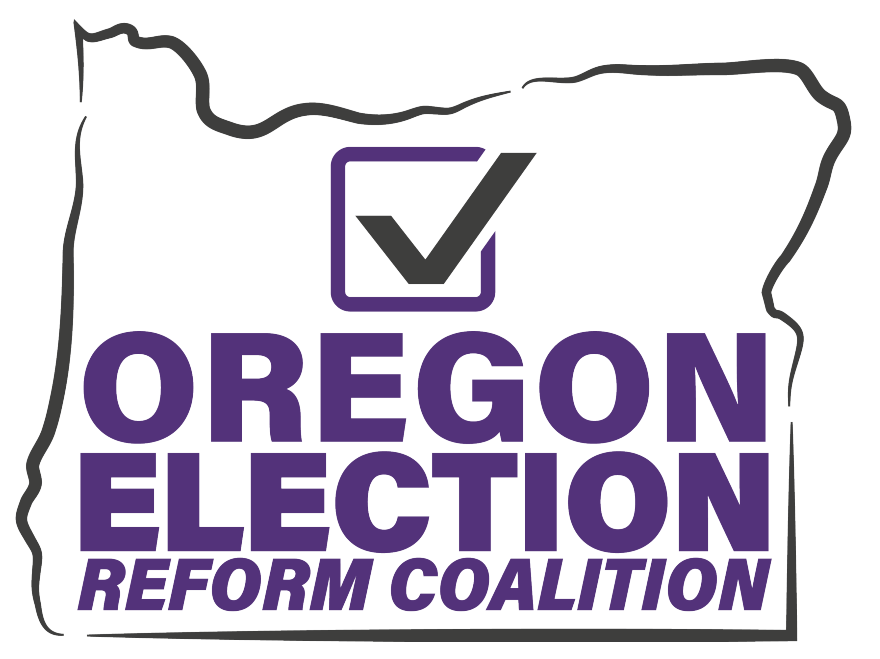What will the Oregon Election Reform Act do?
It sweeps away partisan restrictions on who can participate in primaries.
It promotes healthy competition. It expands voter choice.
Applies to the state’s most powerful offices.
US Senator, Representative in Congress, Governor, Secretary of State, Attorney General, state Treasurer, state Senator, state Representative, and commissioners in many Oregon counties. Jurisdictions can opt in for their nonpartisan offices.
Allows all registered voters to vote in publicly funded primaries.
Today, Democrats and Republicans only are allowed to vote in public primaries for the state’s most powerful offices. That means that over 1.2 million voters - 42% of the electorate - are shut out simply because they are not registered with one of the two major parties.
Opens competition by allowing all qualified candidates to compete in primaries.
Today, only Democratic and Republican candidates are allowed to compete in publicly funded primaries. Non-affiliated and minor party candidates are shut out.
Levels the playing field for candidates.
Today, filing requirements are much harder to meet for non-affiliated candidates than for party candidates. The Act makes filing requirements simpler and equally applicable to all candidates for an office.
Requires that all candidates compete on the same primary ballot.
No longer will there be party-only ballots that insulate candidates from the competition. By competing together, candidates will be more likely to “reach across the aisle” to attract votes and be less likely to play to party extremes.
Frees voters to choose any candidate running for an office.
The Act provides for a single primary ballot for each precinct, not three ballots, one for each major party and one for everybody else. You will be able to choose who you believe to be the best candidate running for an office - without regard to party affiliation.
Encourages political parties to weigh in.
The Act enables political parties to “acknowledge” the candidates they find acceptable in primary elections and “endorse” the candidates they prefer in general elections, and this information will be included on the ballot. Party leanings are important information for voters. The Act includes protections that ensure party decisions on which candidates to acknowledge and endorse represent the views of the party’s membership.
Allows the top 5 candidates for an office to advance from the primary to the general election.
Unlike other open primary states, where the top 2 (Washington, California) or top 4 (Alaska) vote-earners in the primary election for an office advance to the general election, the Oregon Elections Reform Act allows the 5 highest vote-earners to advance -- to broaden the choices voters have available come November. No limits on the party affiliation of candidates who advance.
Enables voters to express their candidate preferences more fully.
In general elections, voters will be able to rank or rate the candidates on their ballots to give more weight to candidates they prefer and less weight to candidates they disfavor. Today, voters must choose one candidate only, even when it is a close call. Votes will be tabulated through a process that ensures winning candidates are favored by a majority of voters. Runoffs among the most popular candidates will be automatic and not require the casting of more ballots later. Specifics on the new voting method will be decided by the Oregon Legislature before the Act’s implementation. Should the Legislature fail to act, the Secretary of State will select the method.
Shortens the campaign season.
The Act moves the biennial primary from mid-May to the first Tuesday in August, which coincides with Washington State’s primary. Among other benefits, this helps open the door to non-professional, lower-resourced candidates, who can decide to run for office as late as June, instead of the first week in March as required today. The Act also moves the quadrennial primary for US President to the second Tuesday in March, the same date as Washington and Idaho, to create a “Super Tuesday” for the Pacific Northwest. Today, Oregon’s mid-May primary for President is almost always too late to make a difference or attract attention from presidential candidates and the media.
